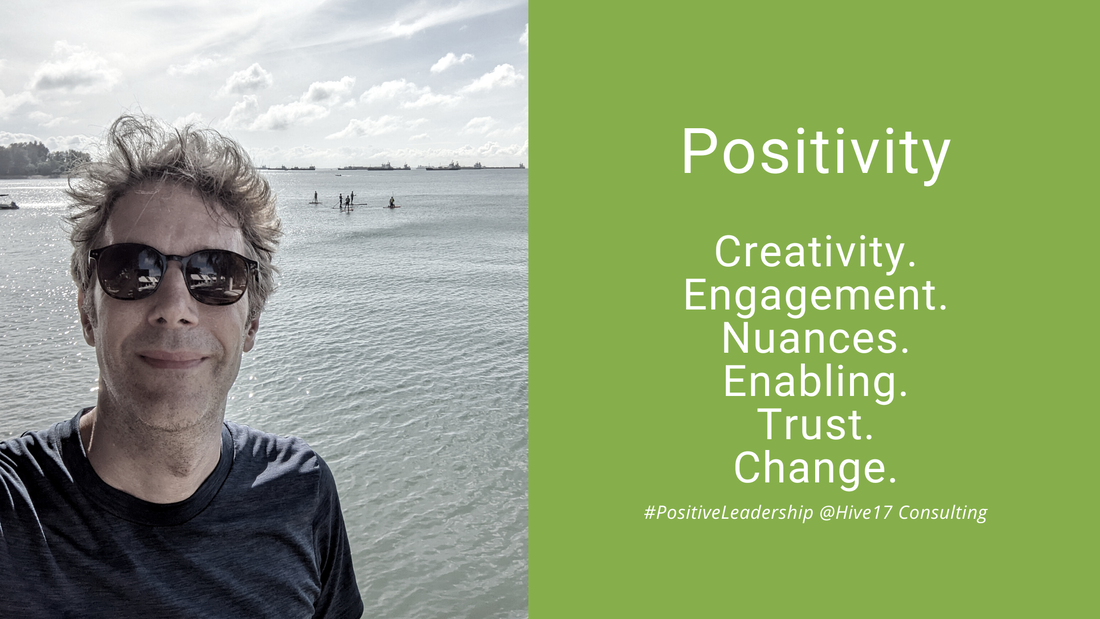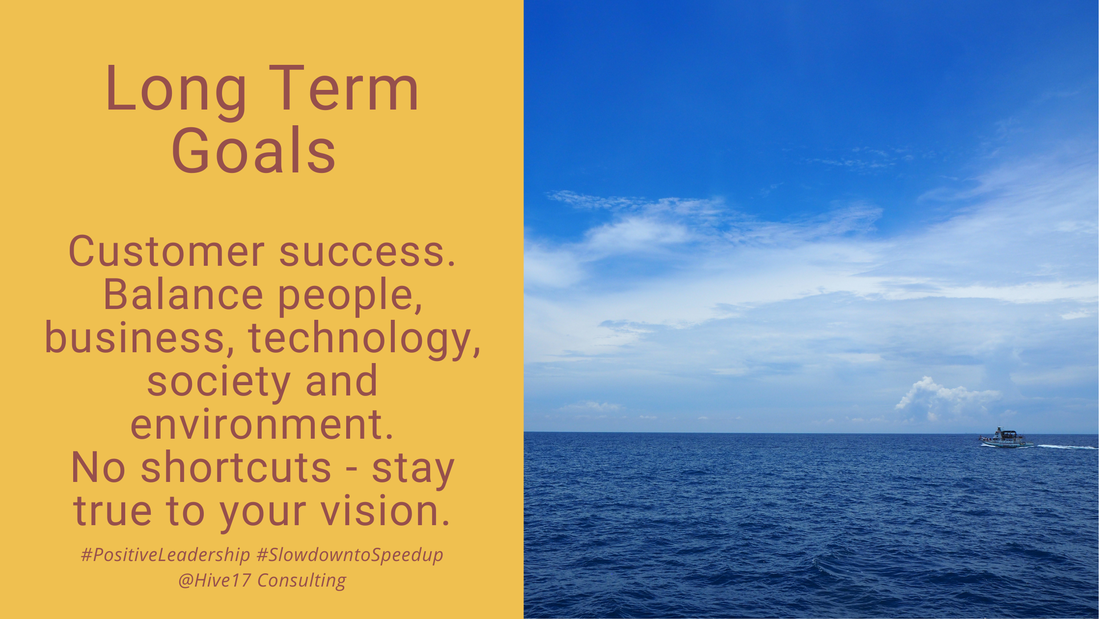|
Friends often come to me and say, 'Hey Tim, you are so positive all the time - how are you doing that?'. One could say, oh, that is simply my character. It might be, though for me it is a deep conviction that positivity is the better approach to life. What led me to this conviction? There are a few elements which I would like to elaborate on here.
First is simply neuroscience: when people are exposed to negative emotional situations then the reptilian brain reacts with freeze, fight or flight. When we are in a positive emotional state, we can thrive; we are good at heuristic tasks, more curious and as a result more productive. Based on this and what I have seen in multiple workshops and real life situations, when we enjoy the situation and are in a good mood, creativity rises, brainstorming sessions work better, we easily solve problems and are overall the engagement and motivation is getting high. Further, I discovered that nothing is simply good or bad. People, processes, systems, situations always have positive and(!) and negative sides. Even a specific action typically leads to advantages and disadvantages. Life in general is nuanced. Are there really errors, mistakes, burning platforms, issues, problems? Or shall we rather say that something has led to an outcome we didn't expect and anticipated. As a result, we always have the possibility of finding something positive about any situation. And yes, that doesn't mean we naively ignore the negative impacts. We have all been in situations where we ourselves get annoyed with something or our counterparts are fuming. With these emotions we are getting defensive, losing the ability to think critically. Positivity allows us to reduce limiting emotions. Prepare a foundation where we can work together towards a better outcome. Then there is trust; an essential element for good collaboration. In order to allow people to open up to each other, a positive environment helps a lot. And, in my experience in change management, positivity makes transformation much much easier. Allows the adaptors to become more receptive and reduces the negative impact any change is creating. How can you become a positive person? First, human- and data-centric approaches like design thinking and lean management allow us to be more considerate, curious and nuanced. Mindfulness helped me a lot to become more balanced and view things in a more down-to-earth way. I love the principles of appreciative inquiry. And I can only encourage practicing more positive leadership. What are your experiences with positivity?
0 Comments
It never seems to stop - people around me are rushing deadlines, month-end closures and are stuck in one "burning platform" after another. I feel many people are stuck in immediate return, the quick buck and focus on financial returns (of the month, the day, the minute?). How does this lead to long-term success? Apparently not.
In my observation, this short-term focus is getting more ingrained in many company and economic structures. When is the last time that you saw a financial report that shows the trend of the last 3 years? Even country GDPs are simply compared to the previous quarter and the same quarter the previous year. And in today's volatile world, that doesn't say much. Further, is GDP (or EBITDA) even the best leading indicator for success? A key question here: how can we become more sensitive about the long-term impact of our actions? Can we justify short-term results that jeopardize long-term objectives? Our world is a complex and interwoven ecosystem; a simplification in financial figures will only lead into wrong directions and actions. What we want is lasting success: for our company, for our employees, for our customers, for our planet and for the society around us. Best explained is this with the Exponential Age, where innovative companies are spending a significant amount on R&D - tinkering to find the best solution knowing that this approach will not lead to short-term return but rather building the ramp to an exponential success in the future! This is based on the capability to change oneself and drive change in a rapid, sustainable way! How to do that? First important step, work on an inspirational Leitbild - an imagination of a future state that guides your business! This is focusing on making your customers successful - and any partner in your business ecosystem is in the end sort of a customer, right? And this success is build on your people, on business success, on technology, and considers the planet and society we are embedded in. Based on this, we can seek short-term results that are aligned with our long-term Leitbild. Any shortcut will jeopardize your long-term success. To answer the initial question: try to imagine what your company will look like in 20 or 30 years. Take a step back and focus on doing the right things. Then you will find ways to catapult your business forward; instead of taking that shortcut. "If we stopped investing we would be out of business in 10-15 years", Werner Vogel, CTO Amazon |
Subscribe
Receive our monthly themed summaries of our thoughts: click! TimTim is a change practitioner in the area of innovation and excellence. He is working with teams to accelerate innovation, collaboration and agility. Categories
All
Archives
July 2024
|



 RSS Feed
RSS Feed